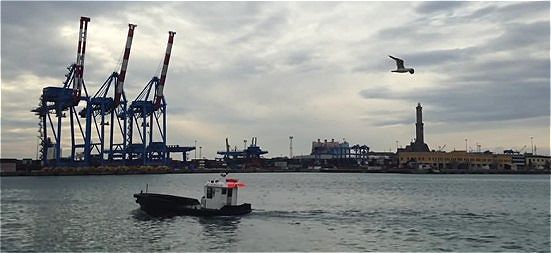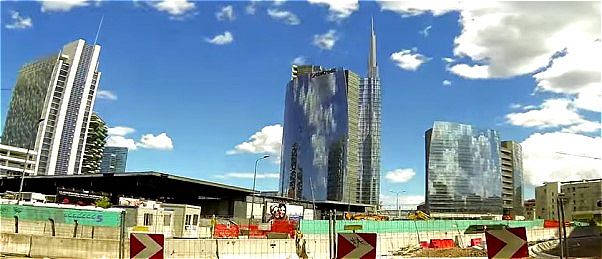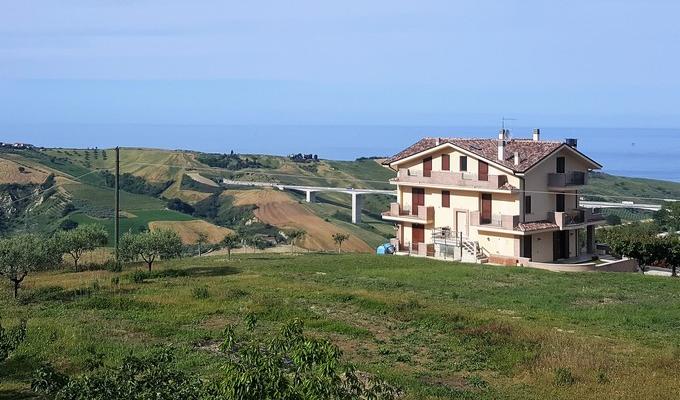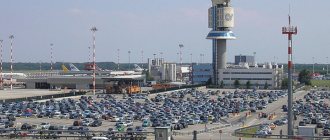Italy is one of the leading countries in the European Union, with stable economic development indicators and prospects for further growth. A comfortable geographical location in the southern part of Europe allows Italy to effectively interact with other countries and strengthen trade relations.
The lion's share of Italian exports goes to Germany, France and the USA. When choosing a city to do business in Italy, you need to take into account the division of the country into a developed industrial north and an agricultural south, which requires financial support from the state.
Despite some of Italy's problems in recent years, related to rising public debt, a slight decline in industrial production and rising unemployment, the country of about 60 million people has a promising market and a reliable labor force.
In the Doing Business rating, Italy ranks 58th out of 190 countries in the world in terms of ease of doing business. Moreover, in terms of international trade, the country is one of the leaders. In this article we will consider the question of how to open and run a business in Italy for a foreigner, a citizen of Russia and Ukraine in particular.
Specifics of doing business in Italy
Business immigration to Italy is an excellent way to move to Europe for permanent residence and in the future obtain Italian citizenship. Before starting an in-depth study of the legal aspects of doing business in Italy, it is necessary to take into account some features of the business climate in this country. The specifics of local life, the Italian mentality and the ensuing rules of behavior in the business environment can greatly influence the achievement of success.
For example, although the level of corruption in Italy is not comparable to the CIS countries, the problem still exists. Just in different forms. One of which is achieving business goals and career growth with the help of family or friendly connections. In Italy, family businesses are passed down from generation to generation for many years. It is almost impossible for a foreigner to get into some niches, and no one will take a bribe from a stranger.

Another feature is the measured life of Italians. For example, the norm of behavior in Italy is to be 20-30 minutes late for a business meeting, or even more. During a meeting, it is not customary to immediately discuss business issues; some time is spent talking on unrelated topics. Hence the need for conversational skills. Much attention is paid to the appearance and neatness of a person, as Italy is known to be a world trendsetter.
Therefore, a big advantage before opening your own business in Italy will be living in this country for some time. And it’s not easy as a tourist, but as a student at an Italian university or an employee. By the way, doing business in Italy as an individual entrepreneur does not prohibit simultaneously getting a job in Italian companies.
Business immigration to Italy: visas, destinations and regions
Business immigration to Italy: visas, destinations and regions
Thanks to its location in the center of the European Union, rich culture and pleasant climate, Italy has been an attractive country for immigrants for many years. This is confirmed by statistics. True, for example, such a method of relocation as business immigration in the case of Italy is not the most obvious. Many have heard about the level of unemployment and economic crises rocking the southern European country. However, given the emerging positive trends in the Italian economy, the advantages of business relocation may outweigh the disadvantages. Doing business in Italy means:
- have access to the EU market
- work close to the most developed countries - Germany, France, Austria and Switzerland
- receive government support.
In this article, Abroadz, together with Permesso expert Vadim Romanchuk, will tell you how things are in the Italian market, how you can move for business and which regions and directions to give your preference.
Business and Migration Climate
In recent years, Italy has been experiencing two opposing trends that directly affect the future of the country's economy and labor market. Firstly, the country is experiencing a significant influx of migrants. Previously, among the 5 million foreign citizens (8% of the population), there were mainly people from North Africa and other EU countries. Since 2013, Italy has become a “transshipment point” for refugees, which forced the government to tighten migration policy. On the other hand, analysts noted an increase in the rate of emigration of native Italians. 5.4 million citizens of the southern European country live outside its borders. These demographic shifts were compounded by the financial crisis. Although Italy still occupies a respectable ninth place in the top ten countries with the largest GDP, the economy has not emerged from prolonged stagnation for a long time. True, by 2021 Italy has recovered from a series of failures, and now experts are giving optimistic forecasts.
Nothing paints the big picture as accurately and objectively as statistics. For 2021, Italy was ranked 51st in the world's leading Doing Business ranking, which compares 190 countries based on their favorable business environment. This is significant progress for the country. Indeed, in 2009-2011, the country grazing on the 83rd-87th lines, making a breakthrough only in 2014. For comparison, similar results are observed in countries such as Montenegro, Hungary, Mexico and Israel. Italy scored the highest on the international trade criterion. The country has decent results in terms of property registration and electricity supply. But Doing Business experts criticized the new tax reforms.

Business immigration to Italy: ways of business relocation
Lavoro autonomo
The number of autonomous operating permits (Lavoro Autonomo) for non-EU citizens is determined by the annual quota decree. The exception is the heads of representative offices and foreign companies. General requirements:
- suitable housing in Italy - details of the requirements in the FAQ from Permesso;
- having income in your country in excess of the minimum level established by law (8,500 euros);
- police permit (NULLa osta).
Italian legislation distinguishes the following categories of autonomous workers:
Entrepreneurs
Italian legislation considers as entrepreneurs those who are directly involved in the production and circulation of goods, perform work or provide services that require the organization of an enterprise. It is important to note that intellectual work - for example, working as a lawyer, notary, doctor, etc. – classifies the immigrant as a free professional. The number of foreign entrepreneurs who have the right to enter is limited by the annual quota decree. The requirements for this category can be summarized as follows:
- Use of own financial resources in the amount of at least 500 thousand euros - naturally, from legal sources;
- Creation of at least three jobs.
The main challenge of the entire event is to convince the migration service that the activities of the future company are of interest to the Italian economy. Mostly, they are refused precisely because of the lack of reasons to enter the country’s market. The migration service's expectations are as follows: appropriate education, business experience and connections with Italy. For example, cooperation with Italian companies. And, of course, they check the package of necessary documents especially carefully.
Officials (president, CEO, member of the board, auditor) in Italian limited liability companies that have been in existence for at least three years. For a foreigner - proof of appointment to a position and receipt of remuneration. From the company - income statements and other documents confirming financial stability.
Freelance professionals
Independent subjects of economic activity. In Italy, they do not cooperate with companies, but look for clients themselves. The issuance of visas to freelance professionals is carried out in accordance with the Italian quota system. According to Permesso's experience, despite the presence of quotas, obtaining such a visa is quite difficult. Most consulates have very strict policies and are cautious about issuing visas. They have their reasons - self-employment does not always guarantee stable income.
Startups
There are two similar programs for entrepreneurs in Italy - Italia Startup Visa and Italia Startup Hub. In the first case, the visa is intended for foreign entrepreneurs from countries outside the EU who want to set up a business in Italy or join an existing start-up. The second program pursues approximately similar goals, but the only difference is that those who already have a residence permit for other reasons can apply for it - study, internship, marriage, etc. The application procedure takes place online, which reduces background checks and information processing time. Before submitting your application, you must collect the following documents:
- Certificate of “no obstacles” from the Italia Startup Visa & Hub technical committee;
- Certificate of availability of 50,000 euros for the creation and management of the company;
- Detailed business plan with proof of innovative value according to Italian law (Law 221/2012).
The requirements for the business itself are:
- A limited liability company based in Italy and registered under Italian law.
- The business is new or registered no more than four years ago;
- Headquarters in Italy or another EU Member State, if the company has at least one branch in Italy;
- Annual turnover less than 5 million euros;
The Italian government does not give preference to certain business sectors or regions when issuing visas.
Heads of representative offices and branches of foreign companies
The government does not regulate the number of heads of representative offices and branches, which means that a visa will not be denied only on the basis of a decree on quotas. The most important thing is that the company is registered or conducts its main activities in a WTO country. The migration service is not concerned about the financial condition of the company. Italy has the following requirements for a leader:
- At least six months of experience in a managerial position;
- Is not the head of the parent company;
- The main income is remuneration from the parent company for management services.
Italian legislation clearly distinguishes between the concepts of branch and representative office. The representative office promotes the interests of the company abroad - establishes connections, advertises goods and services and studies supply and demand. A representative office is not a legal entity. A branch is a legal entity and a taxpayer, which allows the sale of goods and services. In general, do something that generates income. Of course, due to the clear differences in terms of laws, the documents needed are also different. The procedure for opening a representative office of a Permesso branch is described in as much detail as possible here.
Investments
Since 2021, Italy has introduced a visa for foreign investors, taking into account that their investment will benefit the Italian economy. Preference is given to investors who create jobs, invest in growing companies, improve the skills of specialists and sponsor scientific research. Of course, investors are not entirely autonomous workers, but their activities may be relevant to the business. To qualify as an immigrant investor, a foreign national must meet one of the following conditions:
- Deposit at least 2 million euros in Italian government bonds (funds must be held for at least two years);
- At least 1 million euros in shares of a company established and already doing business in Italy (or 500,000 euros for a start-up company);
- At least 1 million euros for charitable purposes and projects in the fields of culture, education, immigration, scientific research, cultural restoration and nature restoration.
In addition, the applicant must take the following actions:
- Confirm that he is the actual owner of the amounts specified above;
- Submit a written commitment to allocate funds to the selected company or project within three months from the date of entry into Italy;
- Have resources sufficient for your own maintenance, amounting to at least 8,500 euros per year.
Important! Family move. In case of any of the listed methods of relocation, the holder of a type D visa can move his family. There are several options:
- Accompanying family members. This option allows all family members to enter Italy at the same time without proof of income earned in Italy. This may be after receiving a category D visa and before entering Italy. The online request for authorization (NULLa osta= is submitted by the client's representative located in Italy. If the responsible authority - the Single Immigration Window (Sportello unico per l'immigrazione) of the Prefecture - approves the request, the consulate issues category D visas to all family members.
- Family reunification with permission. It is possible to reunite with your family after arriving in Italy, subject to obtaining a residence permit and having documents confirming receipt of income in Italy. During the procedure, family members remain in their home country. The applicant or his representative submits a permit request online to the Single Immigration Window (Sportello unico per immigrazione) of the Prefecture in the province where the family plans to move.
- Family reunion on site. This option can be used when the applicant has already received a residence permit. His or her family enters Italian territory by any legal means, including tourist visas. In this case, they submit a request not for permission, but immediately for a residence permit, and not to the prefecture, but through the post office.
Read more about family relocation and documents here.

Business immigration to Italy: best regions and business areas
Northern Italy is the “locomotive” of the country’s economy. 90% of goods for export are produced in the northern regions. 80% of large enterprises are located in the north and together make up the so-called “industrial triangle” - the area between Milan, Turin and Genoa. The Triangle is not only the richest region in Italy, but also has many connections with other countries around the world. The main industries in northern Italy are:
- textile
- iron ore and steel industry
- paper and silk production
- aviation and automotive industries.
All of these areas are traditional for this region. While they may be a reliable choice for a foreign investor or entrepreneur, it is not easy to break into a market occupied by manufacturing giants and compete with them. It is worth paying attention to emerging areas with good development prospects. After all, this is how you can get ahead of your competitors. According to statistics, the oil industry is growing at 18% per year, healthcare and pharmaceuticals at 7%, and architecture and engineering at 3.9%. The Italian information technology market is the fourth largest in the European Union. Despite the bureaucracy and shortage of specialists, Prime Minister Matteo Renzi gives positive forecasts for the growth of the IT sector and predicts the development of automation and robotics. Now in Italy there are 400 companies and 32 thousand workers doing this. 60% of goods and services are exported, mainly to the USA.
The south of Italy, on the contrary, is interrupted by agriculture and tourism. True, with varying degrees of success. According to statistics, there are three times more poor families in the southern regions than in the northern ones. The government is aware of this income gap and is trying to support local businesses by establishing more lenient rules. The government is also attracting foreign investors to southern Italy by issuing grants that can cover:
- up to 65% of company creation costs
- and procurement of property and equipment.
Moreover, in the south, a foreign entrepreneur will have fewer competitors, which, coupled with government support, can mean higher incomes.
Finally
The main thing to take away from the trends described is that strict migration policies do not mean it is impossible to move. With gradual improvements, Italy will attract qualified specialists and entrepreneurs who will create new jobs. It is impossible to say unequivocally that a business move to Italy is a 100% successful event or, on the contrary, a failed idea. After all, you need to take into account many nuances. First of all, a future immigrant should decide on the direction of business, and then on the visa category. Finally, the choice of region will affect the quality of life and business competitiveness:
- more developed north with access to central Europe
- or the relaxed state-supported south.
Tags:
Italy
Starting a business in Italy
The most common forms of entrepreneurship in Italy are small and medium-sized businesses. About 98% of more than 4 million companies employ no more than 20 people, with an average of 4-5 employees. However, if you start from scratch, then small business is the best option for a foreigner.
There are no special restrictions in choosing the type of activity in Italy. To register a company, the services of local specialists will most likely be required. In order to carry out business activities, you need to be legally present on Italian territory, that is, obtain a residence permit in Italy.
Cost and procedure for registering a business in Italy
To register a business in Italy, you must apply to have your new company entered into the business register at your local Chamber of Commerce and Industry office. Today, the register database stores information about more than 6 million companies and 10 million citizens (entrepreneurs, shareholders, directors). Anyone can freely use the information available there. Having correctly filled out all the necessary forms, the applicant will be given:
- company registration code
- taxpayer identification number
- notice of registration with the Social Security Administration
- notification of registration with the accident insurance office

The application is submitted through the special website registroimprese.it. All notifications will be sent to a certified email address. Formally, the procedure can take up to 7 days, in reality 2-3 days. Registration cost is about 220 euros. Also, to register a company you need to complete the following procedures:
- Open a bank account.
- Notarize statutory documents and the state Act of Incorporation (ATTO costitutivo). Cost 150-190 euros.
- Buy corporate and accounting books, pay state tax in the amount of 310 euros.
- In the case of hiring workers, one day before the start of the employment relationship, notify the local labor office via the website co.provincia.roma.it.
- Some activities may require a license.
For more detailed information about the intricacies of registering a business in Italy, you should contact local specialists. Going through this procedure on your own is quite problematic.
Personal experience: how to obtain a residence permit in Italy by opening a company

– Julia, what opportunities are there for obtaining a residence permit in Italy? And what path have you chosen for yourself?
– Most often, foreigners follow one of two paths. The first is the registration of a residence permit on the basis of “chosen place of residence” (Residenza elettiva). The second is through company registration (Lavoro autonomo). You can also obtain a residence permit through family reunification or studying at a university, but these opportunities are not suitable for everyone.
Residenza Elettiva is issued to wealthy foreigners who declare that they want to spend more time in Italy than their visas allow and have enough money to support themselves. The downside of this residence permit is that you will not have the right to work in Italy.
The second path, a residence permit through business, suited my goals better.
– What kind of business is allowed to open to obtain a residence permit?
– There are restrictions on the choice of activities. In Italy, most areas of business are licensed. It is not difficult to obtain a patent to conduct an activity - you need to take courses, pass exams, and you can work. But this only applies to local residents or foreigners with a residence permit. Without a residence permit, you cannot undergo training for a patent.
For foreigners without a residence permit, there are only two permitted types of activities.
The first is non-patent intermediary activity (procacciatore d'affari). In other words, you are stating that the company will provide intermediary services, connect some people with others and take a commission for this.
The second is creative activity (libero professionista). This also includes people of liberal professions - artists, writers, and specialists in general - foreign language teachers, lawyers, accountants and others. But in this case, in addition to the basic requirements, it will be necessary to confirm qualifications.
- Not much. It turns out you won’t be able to get into either the hotel or restaurant business. Some kind of vicious circle - to obtain a residence permit you need a company, but you can’t open it without a license, which you can’t get without a residence permit.
– It only seems so at first glance. There is a solution. Most foreigners first announce the opening of an intermediary company. Then, having issued a residence permit, they take courses and receive a license to conduct the activity they want to engage in, or hire an employee with a patent.
– Tell us about the procedure for obtaining a residence permit through opening a business. How is it structured?
– The main condition is that you must have a place of permanent residence in Italy. Hence the first stage – purchase or long-term rental of real estate. If you choose to rent, the agreement must be registered.
Popular forms of ownership for doing business in Italy
Depending on the goals and scale of the business, Italian legislation provides for different forms of ownership for companies. As in most European countries, the most popular are Limited Liability Company (LLC), Joint Stock Company (JSC) and Individual Entrepreneurship (IP).
LLC (SRL) . The most suitable form for small and medium-sized businesses in Italy. Relatively easy registration procedure and financial reporting requirements. A minimum authorized capital of 10,000 euros can be contributed in cash or in kind.
The amount of the initial contribution is 25% of the authorized capital, if there is one shareholder - 100%. The number of shareholders is not limited, liability is proportional to the shares in the authorized capital.
JSC (SPA) . Suitable for large companies. The minimum authorized capital is 120,000 euros. The liability of shareholders is equal to contributions to the authorized capital. More serious requirements for maintaining accounting and tax reporting than in an LLC.
IP (Ditta individuale) .
The best option for young and inexperienced foreign businessmen. A simple opening procedure, flexible taxation and the ability to simultaneously work as an employee.
Taxes in Italy
Italy has a rather complex tax system, with high interest rates. In some cases, you will have to give away more than 50% of your income. Much depends on the type of activity, city and size of the business.
Italian main tax rates in 2021:
- Income tax is 24% (state) and 3.9% (regional).
- VAT - 22%, reduced rates on some goods and services - 10, 5, 4 and 0%.
- Income tax - progressive rate from 23% to 43%.
Due to the fact that in Italy there is no single document regulating tax legislation, it is very difficult to independently understand the intricacies of paying taxes and ways to optimize them. At first, you will need the help of local consultants.
Popular business destinations in Italy
When choosing a field of activity in Italy, in addition to skills and experience, you need to take into account the demand for this type of business in the region and the bureaucratic delays that you will have to face. For example, opening a restaurant seems very attractive, because Italian cuisine is known throughout the world. But you immediately need to take into account how many licenses and permits will need to be issued, what hygiene standards and quality standards will need to be met. If you start a business in this area, then with something small, a cafe or bar, a small shop.
Another point is the choice of audience. Many people are in a hurry to open a business in Italy, aimed at a Russian-speaking audience. Of course, the number of travel lovers from the CIS countries is not decreasing, but at the same time, competition in this direction is constantly growing.
Italy occupies the top positions in the rankings for annual tourist visits to the country. Therefore, you should not limit yourself to certain nationalities; it is better to reach as many potential buyers as possible. In general, the tourism sector is one of the most profitable in Italy.
Popular areas for business in Italy are the food sector, clothing and fashion, cosmetics, construction, automobiles, and pharmacology. Many of them require special licenses. For example, you can wait up to 6 months for a building permit. Those whose financial situation allows can buy a ready-made business in Italy. There are a lot of options here, the price depends on the city and type of activity. A beauty salon can be purchased for 30 thousand euros, a pizzeria for 500 thousand euros, and a well-known supermarket chain for 5 million euros.
How to start a business in Italy yourself with little investment
There are several ways to become a business owner in Italy:
- Acquisition of a ready-made business. This could be an already functioning production facility, a cafe, or something else. You can rent the premises in which, for example, a restaurant is located.
- Purchasing shares of an already operating enterprise. In this case, be sure to check the enterprise for operability and legal purity, and make inquiries about it. Local agencies that specialize in this issue can help you with this.
- Start your own business from scratch.











